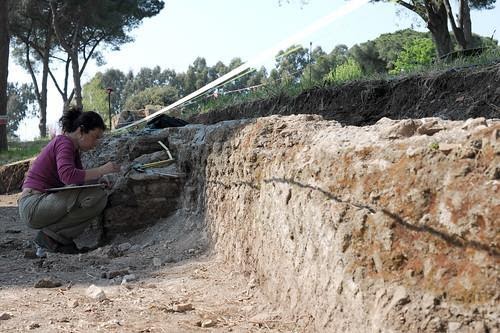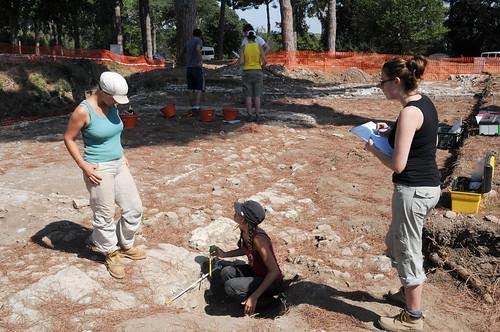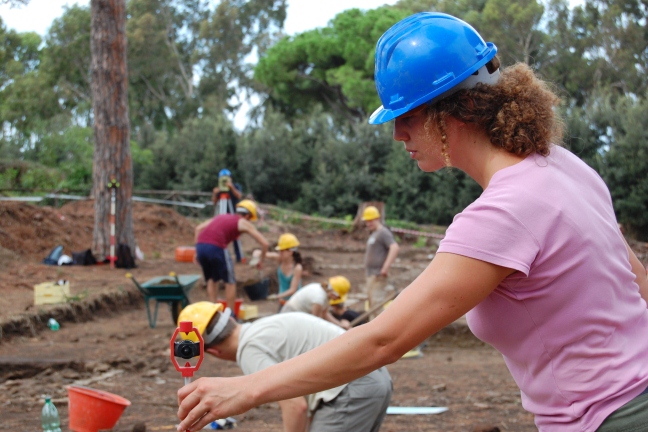Education
Initiatives Arising from the Portus Project

Our interest in linking archaeological research practice to education culminated with work on virtual fieldwork and online learning. This falls under the aegis of the Portus Field School, a University of Southampton initiative arising from the Portus Project, undertaken in conjunction with the British School at Rome and the Parco Archeologico di Ostia. For example, we developed tools to provide access to field learning for disabled students, in partnership with colleagues in Geology, Geography and Oceanography at Southampton. Later, we developed a Massive Open Online Course (MOOC) in partnership with FutureLearn focused on Portus, the Roman Mediterranean, and related archaeological practice.
Student Involvement
The huge cost of large-scale excavations at Classical sites means that they are much rarer today than they used to be. However, the inter-disciplinary and ethical challenges inherent to these, and the range of techniques to which they are suited, means that they are ideal for training the next generation of Classical archaeologists in field and analytical techniques, as well giving them familiarity with the material culture of the Classical world. An AHRC project studentship in Roman ceramics, for example, addressed one of our research questions and generated deep knowledge of amphorae imported from Roman north Africa (Libya and Tunisia), while excavation data provided dissertation topics for MSc Computing students. Furthermore, countless undergraduate students from Southampton, Cambridge, Oxford, Aix-Marseille, Ghent, Roma Tre, Roma La Sapienza, Seville and Tarragona had their first taste of Roman Mediterranean archaeology in this unique context.
The Portus Project was committed to providing an educational environment informed by its research strategy. We have trained undergraduate, masters and doctoral students in on site methods and post-excavation. These students came from all of the partner institutions and from further afield, including students from Europe, North and South America, Africa, Asia and Australasia. We have also had volunteers from outside the university system. Students have used our material as part of their studies, including many undergraduate and masters dissertations and projects, and involvement in approximately ten PhD projects so far. In our most recent stage of the Portus educational strategy we built up on the infrastructure provided by our research funding to create the multidisciplinary Portus Field School that was accessible to students from all disciplinary backgrounds. This reflected our commitment to multidisciplinary research already reflected in Portus project activities, bridging electronics and computer science, ocean and earth science, geography, psychology, engineering, art and the humanities.



